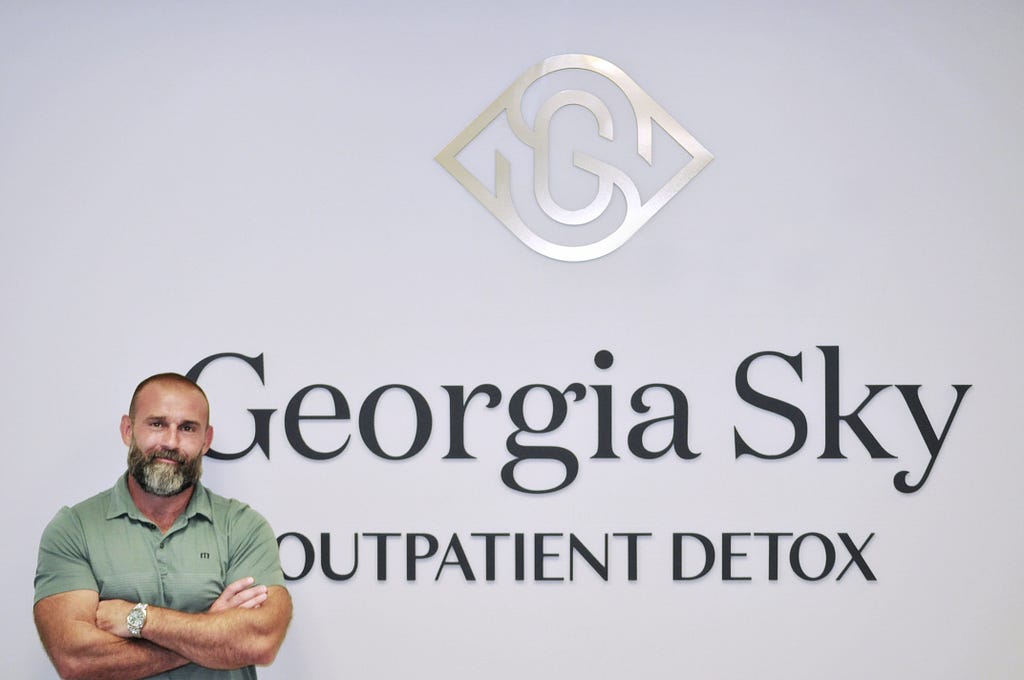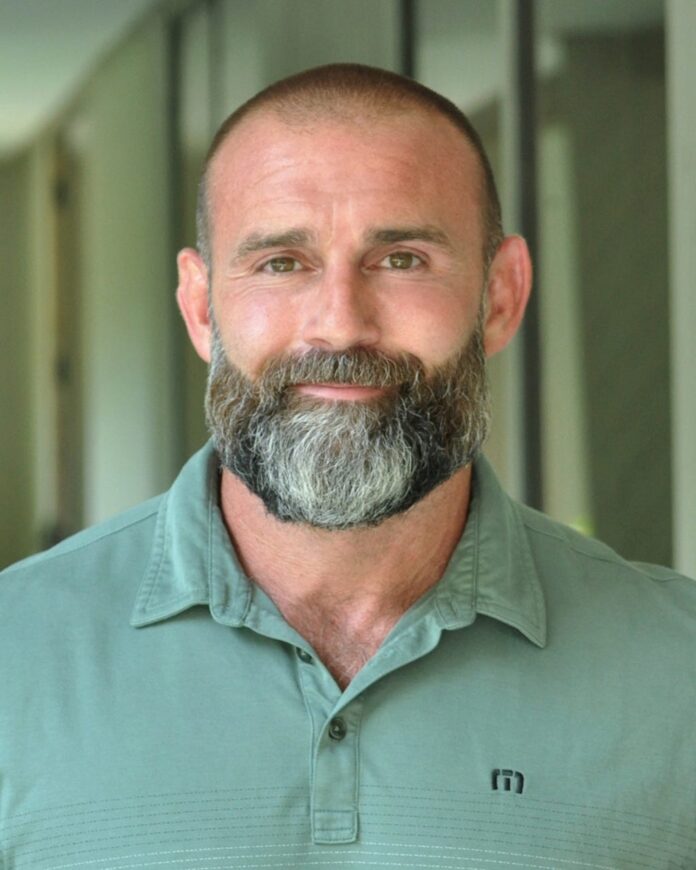Heroes Of The Addiction Crisis: How Jonathan Denker of Georgia Sky Outpatient Detox Is Helping To Battle One of Our Most Serious Epidemics
Consistency is key — there is a reason most treatment centers recommend 90 meetings in 90 days when leaving, which is to develop a good foundation of consistency and routine to stay connected.
As a part of our series about “Heroes Of The Addiction Crisis,” I had the pleasure of interviewing Jonathan Denker.
Jonathan Denker is a New Jersey native who has firsthand experience with the opioid epidemic that this country is facing. After completing residential treatment in South Georgia, Jon moved to the Atlanta area and started working in the treatment industry. He is currently a partner at Georgia Sky Outpatient Detox and spends his free time playing with his two dogs and improving his golf game.
Thank you so much for doing this with us! Can you tell us a bit of your backstory?
I grew up playing sports. In college, while playing football I injured my back. The prescription opioids that the doctors were using to treat my pain ultimately transitioned to harder street drugs. After years of struggling to get sober, my final trip to rehab was in South Georgia where I spent two years at a residential facility. After leaving there, I moved to Atlanta, and I started working for a sober living and intensive outpatient treatment program. When Covid hit, there became an obvious void in the treatment industry. Countless individuals that we encountered were unable or unwilling to go to a residential facility. The list of reasons was endless: childcare, family care, financial restrictions, work restrictions, etc. After many years working in the industry, I learned that outpatient detox was a level of care that was not being offered by anyone in the Atlanta area. My partners and I consulted with a handful of medical and treatment professionals to layout a program that was safe, effective, affordable and accessible to almost anybody struggling.
Is there a particular story or incident that inspired you to get involved in your work with opioid and drug addiction?
I was fortunate that my family was able and willing to afford me the ability to go away for two years. I am very aware that for most people, that is not an option. Knowing that most people cannot afford to take thirty days away from their day-to-day life, we sought out to create a more accessible option, which is ultimately where the inspiration came from.
Can you explain what brought us to this place? Where did this epidemic come from?
I believe the opioid epidemic began from the prolific over-prescribing of pain medication 15–20 years ago, and the epidemic has continued to evolve with more powerful synthetic opioids, such as Fentanyl. In addition to opioids, there are numerous additional drugs that are available to people, both legal and illegal.
Can you describe how your work is making an impact in battling this epidemic?
We have created an environment which has offered countless individuals access to a safe and effective detox from alcohol, opioids, amphetamines and various additional drugs without having a major impact on their day-to-day lives.
Without sharing real names, can you tell us a story about a particular individual who was impacted by your initiative?
A former client, who was a successful executive, stated that if we were not an option, he would have never made the attempt to detox from the substances he was using. According to our client, he would have continued with his addiction until he lost everything, because he was not capable of going away for thirty plus days to receive treatment.
Can you share something about your work that makes you most proud? Is there a particular story or incident that you found most uplifting?
Since I have been sober and working in the industry, I have worked with hundreds of clients in various stages of recovery. The most rewarding part of my work is when we give a client the tools and a path to sobriety, and they utilize what we have given them to find sobriety.
Can you share three things that the community and society can do to help you address the root of this problem? Can you give some examples?
1. Continue talking about the problem to help remove the stigma around addiction
2. For communities and surrounding businesses to provide more support, and place less roadblocks, for substance abuse and mental health treatment centers
3. Professionals (e.g., lawyers, primary care physicians, etc.) to make more of an effort to share resources when they encounter people struggling with addiction
4. The government needs to stop the flow of synthetic opioids into the country.
If you had the power to influence legislation, which three laws would you like to see introduced that might help you in your work?
I think it would be great if individuals with drug and alcohol related charges were given the opportunity to complete treatment in place of jail time and fines. It would also be great if cities, counties and states had larger grant programs for individuals with no resources to get help. The restrictions and waiting list for most state-funded facilities makes it inaccessible to most of the people that need it.
I know that this is not easy work. What keeps you going?
Every day there are more individuals that need help with different circumstances. We want to make sure that there are adequate options and resources for people who need it. When we can provide our services to help people find sobriety, participating in their transformation to sobriety is the most rewarding.
Do you have hope that one day this leading cause of death can be defeated?
Of course, we have hope. It’s going to take a monumental effort by our local businesses, communities and government officials to get us there.

How do you define “Leadership”? Can you explain what you mean or give an example?
I would define leadership as the process of inspiring others to come together and achieve common goals.
What are your “3 things I wish someone told me when I first started” and why? Please share a story or example for each.
1. Bet on yourself — I’ve learned over time that you can’t rely on anybody else to work on you, you must work on you
2. Consistency is key — there is a reason most treatment centers recommend 90 meetings in 90 days when leaving, which is to develop a good foundation of consistency and routine to stay connected.
3. You must be selfish in early sobriety — if you put anything in front of your sobriety, you’ll likely lose it.
You are a person of enormous influence. If you could inspire a movement that would bring the most amount of good to the most amount of people, what would that be? You never know what your idea can trigger. 🙂
I would want people to know that they can have a successful life after an extended period in addiction.
Can you please give us your favorite “Life Lesson Quote”? Can you share how that was relevant to you in your life?
Perseverance is not a long race; it is many short races one after the other. Whether it was school, sports, starting a business — — setting incremental, short-term goals have been critical for the success I’ve achieved.
Is there a person in the world or in the US whom you would love to have a private breakfast or lunch with, and why? He or she might just see this, especially if we tag them. 🙂
Tiger Woods — he has been wildly successful in his golf career and his business ventures all while dealing with and triumphing over substance abuse and legal issues.
How can our readers follow you on social media?
https://georgiaskyoutpatientdetox.com
https://www.instagram.com/georgiaskydetox/
https://www.linkedin.com/company/gsodetox/
This was very meaningful. Thank you so much!
Heroes Of The Addiction Crisis: How Jonathan Denker of Georgia Sky Outpatient Detox Is Helping To… was originally published in Authority Magazine on Medium, where people are continuing the conversation by highlighting and responding to this story.


